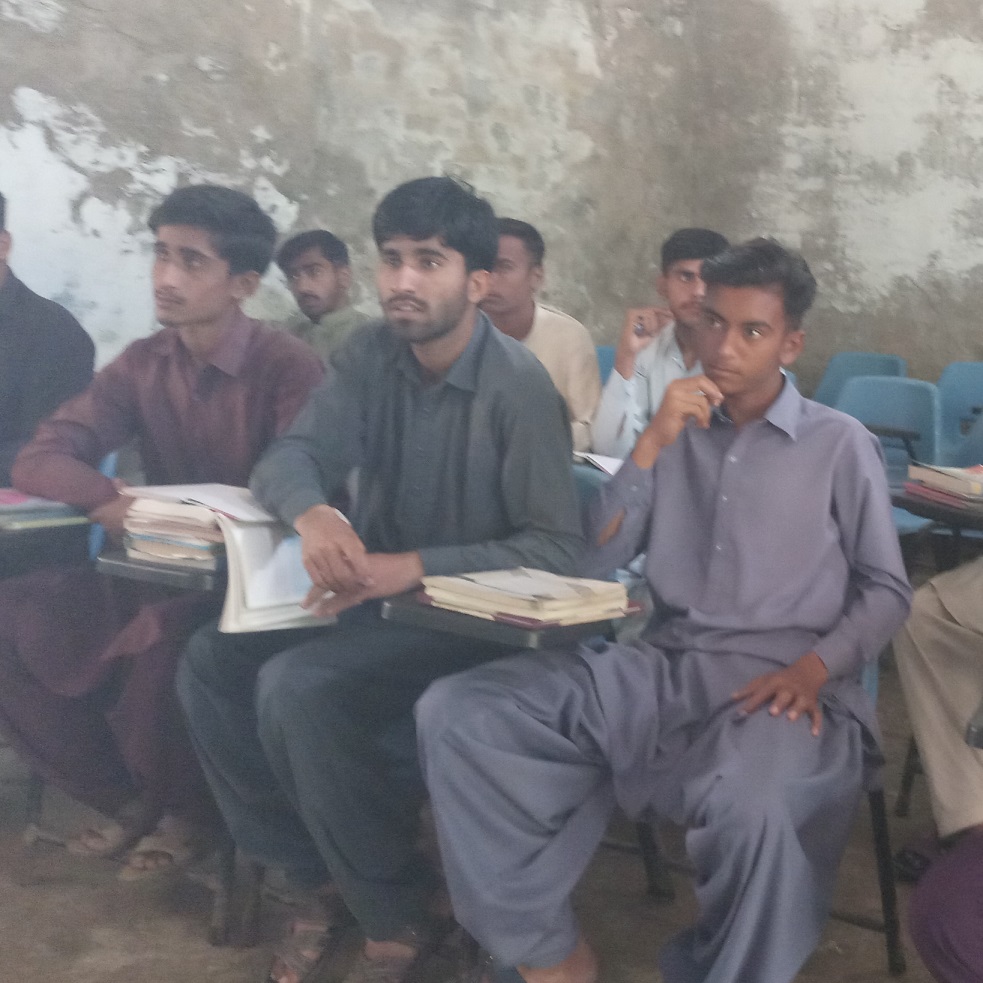Saeed Khan is a Sohbat Pur district resident and a FSC student. He studies at Government College Manjhi Pur, three kilometres from his village, Ameen Marhata.
Seventeen-year-old Saeed Khan completed his matriculation in Manjhi Pur. As a result, commuting to and from college doesn’t pose much of a problem for him, and he has no complaints against the teachers. However, the issue is that the college has only two rooms, which are utilised for classes covering all subjects, including first- and second-year courses.
He says that the condition of both classrooms is so poor that pieces of cement and debris keep falling from the ceiling during classes. His fellow students remain focused on the roof, fearing it might collapse on them.
Saeed’s father, Muhammad Amin, is a farmer who owns twelve acres of land affected by saline water, severely limiting their income. Saeed says that he cannot pursue education outside his town.
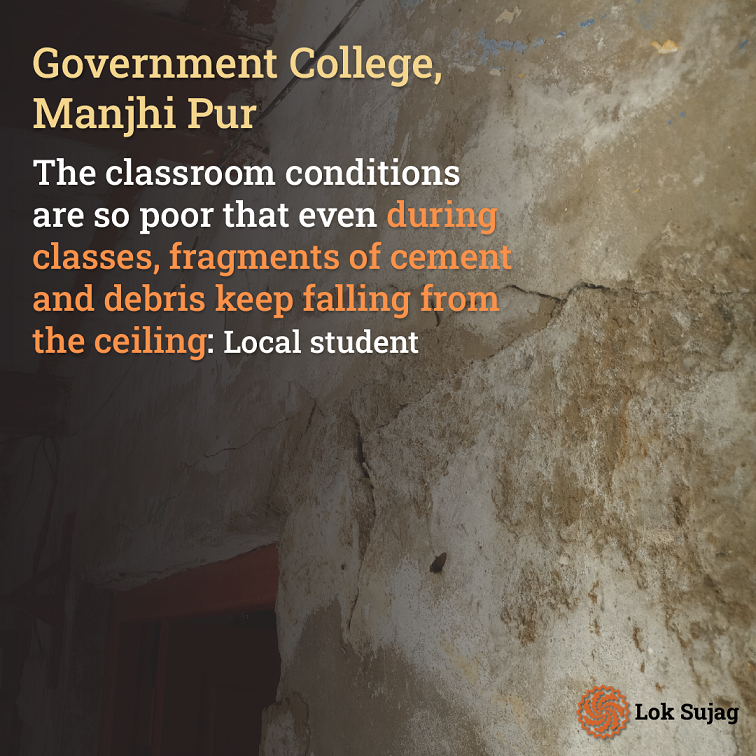
“So, all of us, including the teachers, are compelled to study in these classrooms, where there is a constant risk to our lives. On Independence Day, a significant portion of the roof fell. Fortunately, the boys were outside then, so no one was harmed.”
He has heard that funds have been allocated for the new college building for three years, but he does not know why the construction hasn’t started yet.
The Tehsil of Manjhi Pur in the Sohbatpur district of Balochistan is connected to the Jacobabad district in Sindh. Despite being home to about 18,000 people, Manjhi Pur is an ancient settlement.
Manjhi Pur is the second city in the region after Sibi, where a primary school was established during the British era. In 1946, it was upgraded to a middle school, and a hostel was also built here. Students from Nasirabad used to reside here and were provided food by the local landowner, Khan Bahadur.

In 1952, Manjhi Pur Middle School was upgraded to a high school. Several years later, another high school was established here. However, until 2013, students had to go to Hirauddin Inter College for their FSC education. In 2015, approval was granted to establish Manjhi Pur Inter College.
Professor Allah Dad Panhyar, the lecturer at the college, says that classes commenced two years later, in 2017. Professor Jan Muhammad Khosa was appointed as the first principal. Even at that time, the college did not have a building.
He says that with the assistance of various individuals, the principal managed to secure a room in Manjhi Pur High School and started evening classes there. The college operated in that room for five months. Subsequently, the new principal, Muhammad Ayub Mengrio, assumed charge, and by then, the number of students had increased.
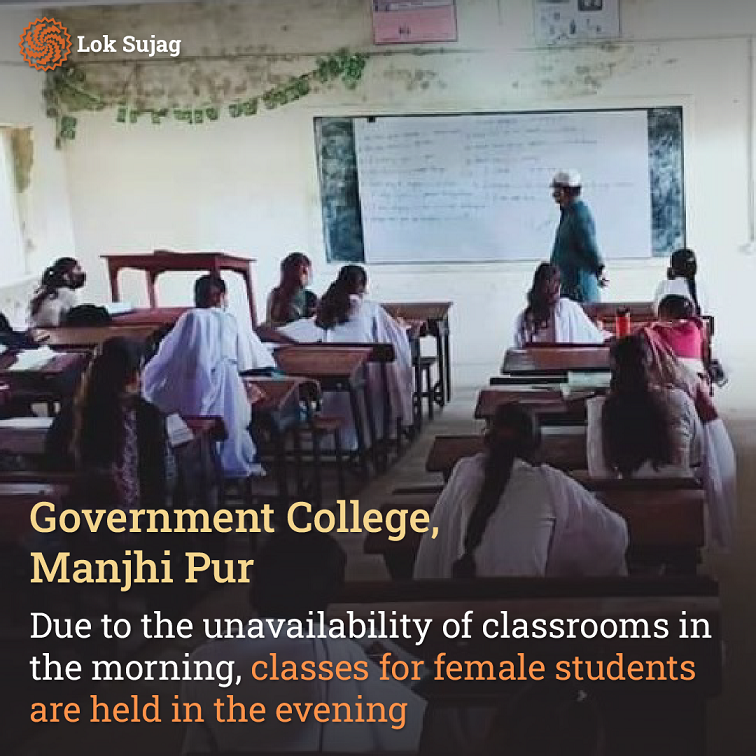
Mengrio says that thanks to the interest of political figures and his efforts, they chose the old abandoned hostel building from 1946. In this dilapidated structure, four rooms were made usable, including one office, one laboratory, and two classrooms.
Manjhi Pur College was granted degree-granting status in 2019. However, due to the lack of a building, classes for BS programs could not be initiated.
Currently, Manjhi Pur College conducts only FA/FSc classes. The institution accommodates 250 male students and 70 female students. Due to the limited availability of classrooms in the morning, female students attend evening classes.
The principal says that the current building poses severe risks to the lives of both staff and students. Children fear attending college now, and continuing education in this building has become extremely challenging.
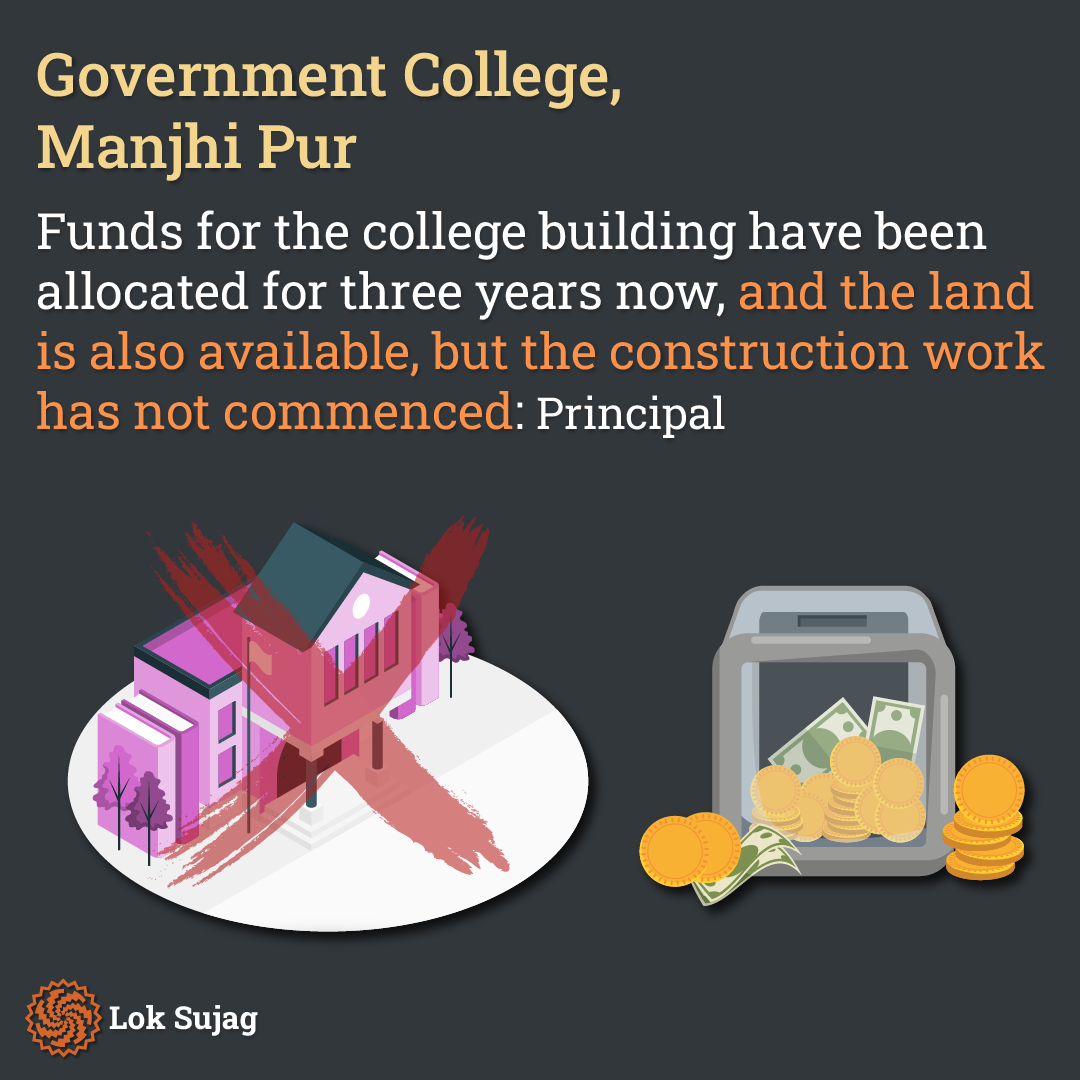
He expresses frustration that funds for the college building have been available for three years. The land has also been allocated, but the construction work has not yet begun.
The Executive Engineer of the Department of Communications and Works, Ahmed Nawaz Imrani, says that a budget of 15 crore 52 lakh rupees was approved for the Degree College in the 2020 budget. The department issued tenders for Phase One on November 17, 2021.
“The district administration allocated ten acres of land, one kilometre west of Manjhi Pur, in June 2022. Subsequently, ten per cent of the mobilisation funds, totalling one crore and fifty lakh rupees, were released to the contractor for mobilisation purposes.”
He mentions that work had started when the land was allocated, but the work had to be halted due to rainfall.
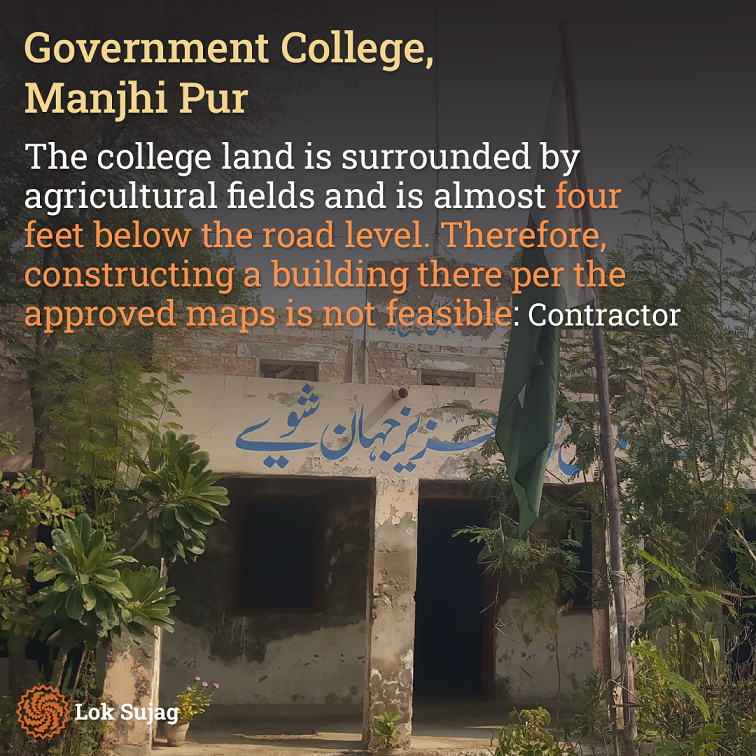
Subsequently, the terrain became unsuitable for further work, and to this day, water stands on that land.
Abdul Aziz Khosa, the contractor for the college’s construction, says that the department issued the work order two months after the tender. However, there was no passage for transporting materials and machinery to the site, and no funds were allocated for constructing the passage in the tender. He spent 25 lakh rupees out of his pocket to build the passage.
He says the land was not registered in the college’s name when he started the work. This issue was resolved through the Revenue Board in June 2022. However, when he attempted to resume work, heavy rainfall caused flooding, making the site unsuitable for construction until today.
“The college land is surrounded by agricultural fields and is almost four feet below the road level. Therefore, constructing a building there per the approved maps is not feasible.”
Also Read
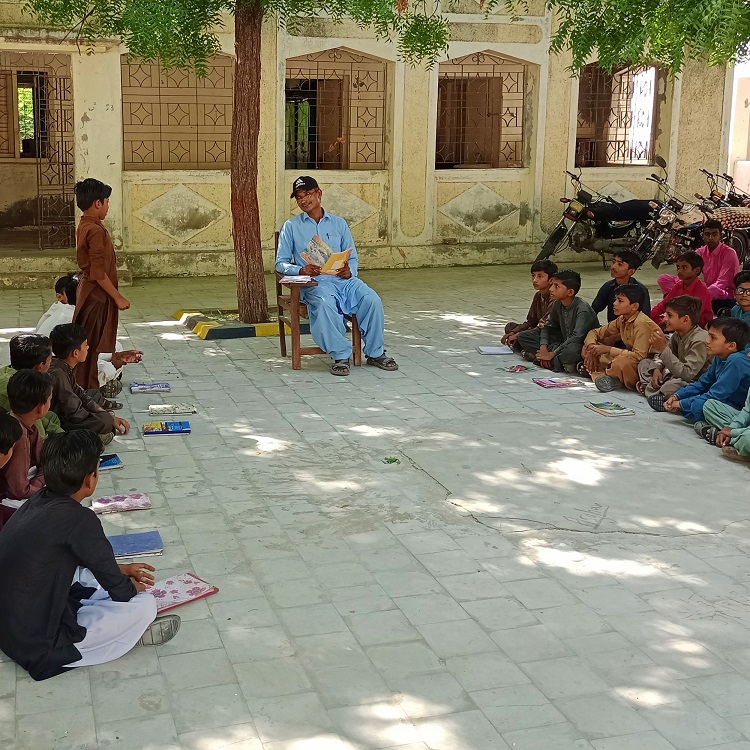
In Nagarparkar, the lack of subject specialists leaves higher secondary schools without regular classes
Abdul Aziz says that he will work only with the funds available to him and would not be able to go beyond that since the costs of materials have increased significantly.
“If the department reissues a tender, only then is the resumption of the work possible.”
However, the executive engineer of the building believes that the contractor needs to complete the work as per the terms of the tender. If necessary, new tenders can be requested. However, if the work remains incomplete, the contractor might face blacklisting.
Muhammad Asif Khosa is the Chairman of the Union Council Manjhi Pur. He says that agreements were presented before this college’s district and union council. With several people’s efforts, an intermediate and then a degree college were initially approved. Afterwards, requests were made to all departments for the construction of the building.
“Money has been available for three years, but work isn’t progressing. If there’s any issue regarding the land, the Deputy Commissioner should transfer the old hostel area to the college’s name. We are not concerned with the negligence of the department or the contractor. If the construction of the college doesn’t commence, we will seek legal recourse.”
Published on 24 Nov 2023
